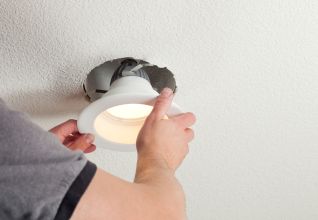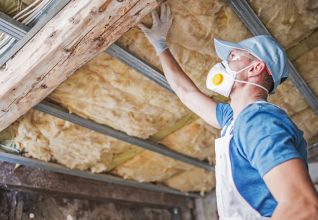In today’s fast-paced world, energy is not just a necessity but a lifeline that keeps our homes running smoothly. From lighting up rooms to powering appliances, energy is a constant presence in our everyday lives. However, with the escalating global concerns about climate change and dwindling non-renewable resources, it is becoming increasingly important to use energy wisely and efficiently.
Imagine reducing your energy consumption, shrinking your utility bills, and contributing to a healthier environment, all from the comfort of your home. Sounds too good to be true? Well, it isn’t. This article will guide you through understanding energy consumption and present practical tips on how to save energy at home. Moreover, it will delve into renewable energy options that can take you a step further in your energy-saving journey. So, let’s switch on the saving mode and get started!
Understanding Energy Consumption
The Role of Appliances
Almost every household chore involves the use of an appliance. From washing dishes and clothes to preparing meals and entertainment, appliances are indispensable. However, they also account for a significant portion of your energy bill. Do you ever wonder how much energy your refrigerator or washing machine consumes?
How Heating and Cooling Systems Consume Energy
Almost half of a typical home’s energy use may be accounted for by heating and cooling systems, in case you didn’t know. Simply changing your thermostat or properly sealing your windows and doors could help you save a surprising amount of energy.
Practical Tips to Save Energy at Home
Optimising Your Lighting System
Use Natural Light
Ever heard of the term ‘daylighting’? It’s all about using natural light to illuminate your home. It reduces the need for artificial lighting and creates a lively, vibrant atmosphere. So, how about throwing open those curtains and letting the sunshine in?
Switch to Energy-Efficient Bulbs
Still, using incandescent bulbs? It’s high time you made a switch. Energy-efficient bulbs such as LEDs and CFLs use up to 80% less energy than traditional bulbs and last much longer. Now, isn’t that a bright idea?
Regulating Temperature
The Power of Insulation
Your home’s insulation acts as a kind of thermal envelope. In the winter, it keeps warm air from departing, while in the summer, it stops hot air from coming in. What then is holding you back from insulating your house and cutting your energy expenditures for heating and cooling?
Smart Thermostats
With a smart thermostat, you can control your home’s temperature from anywhere using your smartphone. It learns your schedule and preferences, adjusting the temperature accordingly. So, why not go smart and save energy?
Water Usage Efficiency
Low-Flow Fixtures
A low-flow showerhead or faucet reduces water usage without compromising pressure. This means less energy for heating water, and that’s good news for your energy bill, right?
Energy-Efficient Appliances
When purchasing a new appliance, consider its energy efficiency. Look for the Energy Star label. It’s a simple way to ensure you get an appliance that uses less energy.
Renewable Energy Options
Solar Power
Have you given the idea of using the sun’s energy to power your house any thought? Solar panels reduce your reliance on the grid by converting sunshine into electricity. Could this be your next major effort to conserve energy?
Wind Energy
Wind energy might not be a conventional choice for residential homes, but it’s worth exploring. Small wind turbines can generate a substantial amount of electricity for your home. Could this be the renewable energy source you’ve been looking for?
The Benefits of Saving Energy
Saving energy has benefits beyond just lower energy costs. It also lessens your carbon impact, which helps to create a more sustainable future. And who doesn’t want to do their part to keep our lovely world intact?
Key Takeaway
Saving energy at home is easier than you think. With a few practical changes and an understanding of energy consumption, you can significantly reduce your energy usage. Whether it’s using natural light, regulating temperature efficiently, or exploring renewable energy options, every step counts. So, are you ready to embark on your energy-saving journey?
FAQs
What is the easiest way to save energy at home?
The easiest way to save energy at home is by replacing your incandescent bulbs with energy-efficient bulbs such as LEDs or CFLs. This small change can make a big difference in your energy consumption.
How can insulation help in saving energy?
Insulation is a barrier to heat flow, keeping your house cool in the summer and warm in the winter. You reduce the strain on your heating and cooling systems and save electricity by doing this.
Are Energy Star appliances worth the extra cost?
Yes, Energy Star appliances may cost more upfront, but they save money in the long run by reducing energy consumption.
Is solar power a good option for homes?
Yes, solar power is an excellent option for homes. It can significantly reduce your energy bills and even allow you to sell excess power back to the grid.
What are some benefits of saving energy?
Saving energy lowers energy costs, aids resource conservation, and lessens pollution. Additionally, it helps people live more sustainably and sustainably.


